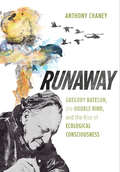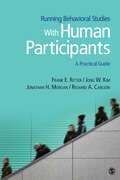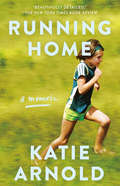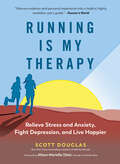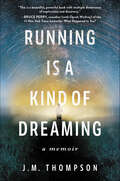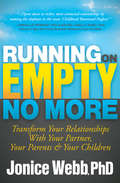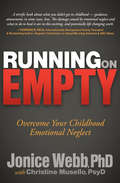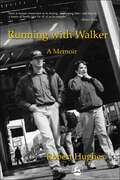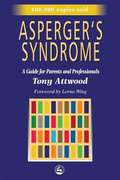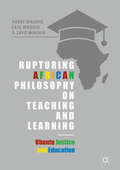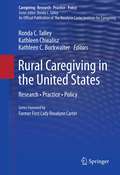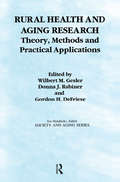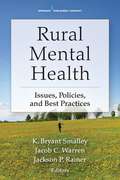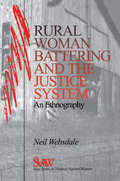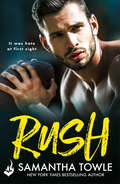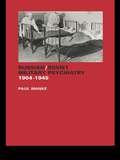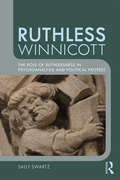- Table View
- List View
Runaway: Gregory Bateson, the Double Bind, and the Rise of Ecological Consciousness
by Anthony ChaneyThe anthropologist Gregory Bateson has been called a lost giant of twentieth-century thought. In the years following World War II, Bateson was among the group of mathematicians, engineers, and social scientists who laid the theoretical foundations of the information age. In Palo Alto in 1956, he introduced the double-bind theory of schizophrenia. By the sixties, he was in Hawaii studying dolphin communication. Bateson's discipline hopping made established experts wary, but he found an audience open to his ideas in a generation of rebellious youth. To a gathering of counterculturalists and revolutionaries in 1967 London, Bateson was the first to warn of a "greenhouse effect" that could lead to runaway climate change.Blending intellectual biography with an ambitious reappraisal of the 1960s, Anthony Chaney uses Bateson's life and work to explore the idea that a postmodern ecological consciousness is the true legacy of the decade. Surrounded by voices calling for liberation of all kinds, Bateson spoke of limitation and dependence. But he also offered an affirming new picture of human beings and their place in the world—as ecologies knit together in a fabric of meaning that, said Bateson, "we might as well call Mind."
Running Behavioral Studies With Human Participants: A Practical Guide
by Frank E. Ritter Richard A. Carlson Jong W. Kim Jonathan H. MorganRunning Behavioral Experiments With Human Participants: A Practical Guide provides a concrete, practical roadmap for the implementation of experiments and controlled observation using human participants. Covering both conceptual and practical issues critical to implementing an experiment, the book is organized to follow the standard process in experiment-based research, covering such issues as potential ethical problems, risks to validity, experimental setup, running a study, and concluding a study. The detailed guidance on each step of an experiment is ideal for those in both universities and industry who have had little or no previous practical training in research methodology. The book provides example scenarios to help readers organize how they run experimental studies and anticipate problems, and example forms that can serve as effective initial "recipes." Examples and forms are drawn from areas such as cognitive psychology, human factors, human–computer interaction, and human–robotic interaction.
Running Home: A Memoir
by Katie ArnoldIn the tradition of Wild and H Is for Hawk, an Outside magazine writer tells her story—of fathers and daughters, grief and renewal, adventure and obsession, and the power of running to change your life.I’m running to forget, and to remember. For more than a decade, Katie Arnold chased adventure around the world, reporting on extreme athletes who performed outlandish feats—walking high lines a thousand feet off the ground without a harness, or running one hundred miles through the night. She wrote her stories by living them, until eventually life on the thin edge of risk began to seem normal. After she married, Katie and her husband vowed to raise their daughters to be adventurous, too, in the mountains and canyons of New Mexico. But when her father died of cancer, she was forced to confront her own mortality. His death was cataclysmic, unleashing a perfect storm of grief and anxiety. She and her father, an enigmatic photographer for National Geographic, had always been kindred spirits. He introduced her to the outdoors and took her camping and on bicycle trips and down rivers, and taught her to find solace and courage in the natural world. And it was he who encouraged her to run her first race when she was seven years old. Now nearly paralyzed by fear and terrified she was dying, too, she turned to the thing that had always made her feel most alive: running. Over the course of three tumultuous years, she ran alone through the wilderness, logging longer and longer distances, first a 50-kilometer ultramarathon, then 50 miles, then 100 kilometers. She ran to heal her grief, to outpace her worry that she wouldn’t live to raise her own daughters. She ran to find strength in her weakness. She ran to remember and to forget. She ran to live. Ultrarunning tests the limits of human endurance over seemingly inhuman distances, and as she clocked miles across mesas and mountains, Katie learned to tolerate pain and discomfort, and face her fears of uncertainty, vulnerability, and even death itself. As she ran, she found herself peeling back the layers of her relationship with her father, discovering that much of what she thought she knew about him, and her own past, was wrong. Running Home is a memoir about the stories we tell ourselves to make sense of our world—the stories that hold us back, and the ones that set us free. Mesmerizing, transcendent, and deeply exhilarating, it is a book for anyone who has been knocked over by life, or feels the pull of something bigger and wilder within themselves. “A beautiful work of searching remembrance and searing honesty . . . Katie Arnold is as gifted on the page as she is on the trail. Running Home will soon join such classics as Born to Run and Ultramarathon Man as quintessential reading of the genre.”—Hampton Sides, author of On Desperate Ground and Ghost Soldiers
Running Is My Therapy: Relieve Stress And Anxiety, Fight Depression, And Live Happier
by Scott DouglasA lifelong runner’s groundbreaking guide to fighting depression and anxiety, one run at a time Everyone knows that running builds stronger muscles and a healthier heart. In Running Is My Therapy, longtime runner Scott Douglas shows how endurance running is also the best form of exercise to develop a healthier brain. A natural antidepressant, running reinforces the benefits of therapy and triggers lasting, positive physiological changes. In fact, some doctors now “prescribe” a running regimen as part of their first-line treatment plan for depression. Marshaling expert advice and a growing body of research, Douglas explains how we can all use running to improve mental health—and live happier.
Running Is a Kind of Dreaming: A Memoir
by J. M. ThompsonA powerful, breathtaking memoir about a young man's descent into madness, and how running saved his life.“Voluntary or involuntary?” asked the nurse who admitted J. M. Thompson to a San Francisco psychiatric hospital in January 2005. Following years of depression, ineffective medication, and therapy that went nowhere, Thompson feared he was falling into an inescapable darkness. He decided that death was his only exit route from the torture of his mind. After a suicide attempt, he spent weeks confined on the psych ward, feeling scared, alone, and trapped. One afternoon during an exercise break he experienced a sudden urge. “Run, I thought. Run before it’s too late and you’re stuck down there. Right now. Run. ” The impulse that starts with sprints across a hospital rooftop turns into all night runs in the mountains. Through motion and immersion in the beauty of nature, Thompson finds a way out of the hell of depression and drug addiction. Step by step, mile by mile, his body and mind heal. In this lyrical, vulnerable, and breathtaking memoir, J. M. Thompson, now a successful psychologist, retraces the path that led him from despair to wellness, detailing the chilling childhood trauma that caused his depression, and the unorthodox treatment that saved him. Running Is a Kind of Dreaming is a luminous literary testament to the universal human capacity to recover from our deepest wounds.
Running for My Life: My Journey in the Game of Football and Beyond
by Don Yaeger Warrick DunnThe “inspiring” autobiography by the NFL running back—a tale of grief, glory, giving back, and never giving up (Sports Illustrated).Warrick Dunn was only eighteen when his mother, a Baton Rouge police officer, was shot and killed. Yet somehow he managed to enroll at Florida State University and help his team to a national championship during his freshman year—while also caring for his five brothers and sisters. Despite his modest size, Dunn went on to a storied NFL career with the Tampa Bay Buccaneers and the Atlanta Falcons, becoming one of only twenty-three running backs in NFL history to exceed the 10,000-yard career rushing mark. Off the field, he created the Warrick Dunn Foundation and its Homes for the Holidays program, helping single parents achieve first-time home ownership. But in his drive to help others, the one person Dunn neglected was himself, as the pain of his mother’s loss led to a spiraling depression that went untreated for years.Running for My Life details Dunn’s struggle to confront his past and face the grief that consumed him for far too long. Thought-provoking and uplifting, it is the story of an exceptional athlete’s secret torment and inspiring courage.“Only in reading this stunningly honest account can you begin to understand that Dunn became what he never set out to become: a role model.” —St. Petersburg TimesIncludes photos
Running like China: A memoir of a life interrupted by madness
by Sophie HardcastleFrom a talented emerging Australian writer, a brave, honest, unforgettable memoir about mental illness that breaks the silence and shatters the taboos to give hope to all those struggling to find their way through.'When I was eleven years old Mum told me, "One crowded hour of glorious life is worth an age without a name." Even before I heard these words I was always a child who crammed intense joy into tiny pockets of time.'One day Sophie Hardcastle realised the joy she'd always known had disappeared. She was constantly tired, with no energy, no motivation and no sense of enjoyment for surfing, friends, conversations, movies, parties, family - for anything. Her hours became empty. And then, the month before she turned seventeen, that emptiness filled with an intense, unbearable sadness that made her scream and tear at her skin. Misdiagnosed with chronic fatigue, then major depression, then temporal lobe epilepsy, she was finally told - three years, two suicide attempts and five hospital admissions later - that she had Bipolar 1 Disorder.In this honest and beautifully told memoir, Sophie lays bare her story of mental illness - of a teenage girl using drugs, alcohol and sex in an attempt to fix herself; of her family's anguish and her loss of self. It is a brave and hopeful story of adaptation, learning to accept and of ultimately realising that no matter how deep you have sunk, the surface is always within reach. Running Like China shatters the silence and smashes the taboos around mental illness. It is an unforgettable story.
Running on Empty No More: Transform Your Relationships with Your Partner, Your Parents & Your Children
by Jonice Webb&“Opens doors to richer, more connected relationships by naming the elephant in the room &‘Childhood Emotional Neglect&’&” (Harville Hendrix, PhD & Helen Lakelly Hunt, PhD, authors of the New York Times bestseller Getting the Love You Want). Since the publication of Running on Empty: Overcome Your Childhood Emotional Neglect, many thousands of people have learned that invisible Childhood Emotional Neglect, or CEN, has been weighing on them their entire lives, and are now in the process of recovery. Running on Empty No More: Transform Your Relationships will offer even more solutions for the effects of CEN on people&’s lives: how to talk about CEN, and heal it, in relationships with partners, parents, and children. &“Filled with examples of well-meaning people struggling in their relationships, Jonice Webb not only illustrates what&’s missing between adults and their parents, husbands, and their wives, and parents and their children; she also explains exactly what to do about it.&” —Terry Real, internationally recognized family therapist, speaker and author, Good Morning America, The Today Show, 20/20, Oprah, and The New York Times &“You will find practical solutions for everyday life to heal yourself and your relationships. This is a terrific new resource that I will be recommending to many clients now and in the future!&” —Dr. Karyl McBride, author of Will I Ever Be Good Enough?
Running on Empty: Overcome Your Childhood Emotional Neglect
by Jonice Webb Christine MuselloThis informative guide helps you identify and heal from childhood emotional neglect so you can be more connected and emotionally present in your life. Do you sometimes feel like you&’re just going through the motions in life? Do you often act like you&’re fine when you secretly feel lonely and disconnected? Perhaps you have a good life and yet somehow it&’s not enough to make you happy. Or perhaps you drink too much, eat too much, or risk too much in an attempt to feel something good. If so, you are not alone—and you may be suffering from emotional neglect. A practicing psychologist for more than twenty years, Jonice Webb has successfully treated numerous patients who come to her believing that something is missing inside them. While many self-help books deal with what happened to you as a child, in Running on Empty, Webb addresses the things that may not have happened for you. What goes unsaid—or what cannot be remembered—can have profound consequences that may be affecting you to this day. Running on Empty will help you understand your experiences and give you clear strategies for healing. It also includes a special chapter for mental health professionals.
Running with Walker: A Memoir
by Robert HughesBy the time he was three, Walker's parents were concerned enough about his delayed development to consult a paediatric neurologist. Doctors diagnosed autism and issued a grim prognosis: 'I hold out no hope for this child'. But they hadn't accounted for Walker's intelligence, affection, and sense of humour - or for the remarkable bonds that grew within his family. Walker's father, Robert Hughes, tells a touching and inspiring story of discovering that their 'perfect little boy had a problem'. With disarming honesty and humour, the book tells how a family copes and keeps hope alive despite the staggering difficulties autism presents.
Running with Walker: A Memoir
by Robert J. HughesWhen Walker Hughes is two years old, a neurologist tells his parents that he has autism and concludes, "I have very little hope for this child." Walker's parents refuse to accept this grim prognosis. With boundless energy and breathtaking creativity they set about to enhance his skills and enrich his life. There is no miracle cure, no magic key that unlocks the door to Walker's inner world. Hughes vividly describes his son's severe disability and at the same time portrays him as an exuberant, loving, and utterly unique individual.
Rupturing African Philosophy on Teaching and Learning: Ubuntu Justice And Education
by Yusef Waghid Faiq Waghid Zayd WaghidThis book examines African philosophy of education and the enactment of ubuntu justice through a massive open online course on Teaching for Change. The authors argue that such pedagogic encounters have the potential to stimulate just and democratic human relations: encounters that are critical, deliberate, reflective and compassionate could enable just and democratic human relations to flourish, thus inducing decolonisation and decoloniality. Exploring arguments for imaginative and tolerant pedagogic encounters that could help cultivate an African university where educators and students can engender morally and politically responsible pedagogical actions, the authors offer pathways for thinking more imaginatively about higher education in a globalised African context. This work will be of value for researchers and students of philosophy of education, higher education and democratic citizenship education.
Rural Caregiving in the United States
by Ronda C. Talley Kathleen Chwalisz Kathleen C. BuckwalterCaregivers living in rural areas face daunting obstacles. In addition to the isolation and anxiety that many caregivers across the country experience, rural caregivers must also cope with limited access to uncoordinated resources and severe shortages of trained professionals. Although many research, policy, and practice upgrades have been made in response to caregivers' general concerns, the specific problems facing the rural caregiver have been less frequently addressed. Focusing on what is known as well as what is needed - and zeroing in on major subgroups within this diverse population - Rural Caregiving in the United States replaces misconceptions of the nonurban experience with real-life issues, findings, and solutions. For example, this pioneering volume: Covers a broad range of issues unique to rural caregiving, including research, education/training, policy, and practice.Identifies specific needs related to education, training, and support for rural caregivers.Examines both the positive and negative effects of rural living on caregivers as well as patients.Discusses the importance of in-home care in lieu of scarcer forms of for-profit care (e.g., hospitals).Addresses not only discrepancies between rural and urban health care systems but racial and ethnic disparities within rural health care.Explores the advantages of using information technology to address rural health care limitations. Rural Caregiving in the United States offers uniquely knowledgeable perspectives to researchers, practitioners, and graduate students in the caregiving fields, including psychology, social work, nursing, gerontology and geriatrics, medicine, public health, public policy, and educational policy.
Rural Families and Communities in the United States: Facing Challenges and Leveraging Opportunities (National Symposium on Family Issues #10)
by Valarie King Susan M. McHale Jennifer E. GlickThis book examines the implications of rural residence for adolescents and families in the United States, addressing both the developmental and mental health difficulties they face. Special attention is given to the unique circumstances of minority families residing in rural areas and how these families navigate challenges as well as their sources of resilience. Chapters describe approaches for enhancing the well-being of rural minority youth and their families. In addition, chapters discuss the challenges of conducting research within rural populations and propose new frameworks for studying these diverse communities. Finally, the volume offers recommendations for reducing the barriers to health and positive development in rural settings. Featured topics include:Changes in work and family structures in the rural United States.Rural job loss to offshoring and automation.The opioid crisis in the rural United States.Prosocial behaviors in rural U.S. Latino/a youth.Demographic changes across nonmetropolitan areas. Rural Families and Communities in the United States is a must-have resource for researchers, professors, clinicians, professionals, and graduate students in developmental psychology, family studies, public health as well as numerous interrelated disciplines, including sociology, demography, social work, prevention science, educational policy, political science, and economics.
Rural Families and Work
by Jean W. Bauer Elizabeth M. DolanRural Families and Work focuses on the findings of the Rural Families Speak research study and the theoretical frameworks that are utilized to examine the context of rural low-income families' employment. This volume provides a solid foundation for understanding rural employment problems and issues. Family ecological theory is the central framework with a discussion of theories that contribute to the opportunities for the contextual research, including family economic stress theory, human capital, human capability, and some selected policy frameworks. Employment is addressed through review of policy issues, community contexts, family and social support, and available resources. Throughout the volume future research directions and applications are highlighted.
Rural Health and Aging Research: Theory, Methods, and Practical Applications (Society and Aging Series)
by Wilbert M Gesler Donna G Rabiner Gordon H DefrieseThis book describes a wide-ranging set of research approaches which have been used to study the health care problems of adults living in rural areas. It shows how these approaches can be used to define health care problems, measure levels of illness and health, and evaluate health care practices. For each approach, contributors provide a theoretical background from the health care delivery literature, details of how it can be carried out in the field, its strengths and weaknesses, and illustrative examples from both the literature and their own work.
Rural Mental Health: Issues, Policies, and Best Practices
by K. Bryant Smalley Jacob C. Warren Jackson P. RainerAddressing the needs of America's most underserved areas for mental health services, Rural Mental Health offers the most up-to-date, research-based information on policies and practice in rural and frontier populations. Eminent clinicians and researchers examine the complexities of improving mental health in rural practice and offer clear recommendations which can be adapted into current practice and training programs. They bring an incisive lens to factors that contribute to mental illness and prevent access to treatment areas. These include limited resources, reliance on urban models and assumptions, and pervasive misunderstanding of rural realities by policy makers. The text also addresses diversity issues in regard to rural mental health services.
Rural Teacher Education: Connecting Land and People
by Michael Corbett Dianne GerelukThis book examines challenges associated with the education of teachers in and for rural places. It offers a new perspective with respect to how Canadian educators are shifting the conversation toward a hopeful discourse concerning how educators can foster meaningful rural learning environments, which will contribute to building stronger rural communities and regions. A central focus of the book is emerging reconceptualization of education, place and indigeneity in Canadian education in the wake of the Truth and Reconciliation CommissionThough the challenge of addressing rural teaching and learning lies partly in the nuances and complexities of unique places, there are also common threads that affect virtually all communities in rural, regional and remote educational, cultural, economic, and social geographies. Chapters in this collection provide current research in Canadian rural education including examples and stories from the field – contributed by teachers, administrators, and superintendents – on the challenges and creative opportunities that they have discovered in their own rural context, giving hope and inspiration for what is possible. The book will appeal to all readers interested in rural education and teacher education, as well as to those concerned with educational inequality and indigenous education.
Rural Women Battering and the Justice System: An Ethnography (Sage Series on Violence Against Women)
by Neil WebsdaleDrawing on his ethnographic research in rural areas of Kentucky, the author of this book presents a thorough look at the experiences of battered women in rural communities. Neil Websdale demonstrates how rural patriarchy and an insidious ol' boy's network of law enforcement and local politics sustains and reproduces the subordinate, vulnerable, isolated position of many rural women. Taking into account that traditional patterns of intervention can often put women in isolated communities at further risk, the author recommends a coordinated multi-agency approach to rural battering, spearheaded by the agencies of state feminism.
Rush
by Nyrae DawnThis heartbreaking, powerful New Adult male/male romance will be loved by fans of Jamie McGuire, Jessica Sorensen and Abbi Glines, as well as by all fans of Nyrae Dawn's The Games trilogy...What if you fell in love with your best friend? But no one could ever know...Brandon Chase has always defined himself by one thing: football. He's the star of the team, an idol to his teammates and surrounded by the hottest girls. But Brandon has a secret - how he really feels about his friend Alec Andrews. Rather than confront the truth, Brandon pushes Alec away. But when Brandon is seriously injured in a car crash, the only person who can get through to him is Alec. Against all odds, Alec helps Brandon train his way back to fitness and prepare for the NFL draft. As they spend the summer together, the two can't deny their attraction - the rush they feel when they're together is impossible to deny and neither wants to walk away. Will Brandon be brave enough to face the consequences of following his heart? No matter what the cost?
Rush: A passionately romantic, unforgettable love story
by Samantha TowleFrom Samantha Towle, New York Times bestselling author of Breaking Hollywood and Ruin, comes a new powerful, passionate and dramatic contemporary romance."With the first pick in the 2015 NFL Draft, the New York Giants select..." It's been three years since quarterback Ares Kincaid's NFL dream came true, and he's living the high life. The days of cleaning up after his drunk of a father are long gone, and he has no intention of going back. A car crash and DUI charge meant a lengthy stint in rehab for Arianna Petrelli, and her dream of being a professional artist slips further away when she's sacked from her position at a gallery. Her need for a job stronger even than her dislike of football, Ari goes to work for her father, the head coach of the New York Giants. Ares hates alcoholics, which is fine with Ari because she thinks he's a brainless jock. Yet when Ares rescues Ari from a situation with her ex-boyfriend, an unlikely friendship begins - one that quickly becomes more. But messing around with the coach's daughter can only lead to one thing...trouble.'A moving and fan-yourself-worthy love story' USA Today's Happy Ever After on Ruin
Russian/Soviet Military Psychiatry 1904-1945
by Paul WankePsychiatry, like most professional fields in Russia, gained its legitimacy from its ability to serve the Tsar and later the Bolshevik party. The militarised nature of these governments meant that psychiatry would have to prove its worth to the military. This study will cover Russian/Soviet military psychiatry from its first practical experience during the Russo-Japanese war to its greatest test during the Great Patriotic War 1941-45. Throughout this study, the continuity between Russian and Soviet military psychiatry will be emphasised. For example, psychiatry's materialist school dominated throughout this period and that Russia's acceptance that psychiatric casualties will occur allowed them to focus their resources on treatment rather than prevention.
Ruth Benedict: A Humanist in Anthropology
by Margaret MeadMargaret Mead offers a deeply insightful portrait of a woman who overcame the barriers of sexism to become one of the most compelling intellectual figures in twentieth-century American life.
Ruth Benedict: Stranger in This Land
by Margaret M. CaffreyPoet, anthropologist, feminist--Ruth Fulton Benedict was all of these and much more. Born into the last years of the Victorian era, she came of age during the Progressive years and participated in inaugurating the modern era of American life. Ruth Benedict: Stranger in This Land provides an intellectual and cultural history of the first half of the twentieth century through the life of an important and remarkable woman. As a Lyricist poet, Ruth Benedict helped define Modernism. As an anthropologist, she wrote the classic Patterns of Culture and at one point was considered the foremost anthropologist in the United States--the first woman ever to attain such status. She was an intellectual and an artist living in a time when women were not encouraged to be either. In this fascinating study, Margaret Caffrey attempts to place Benedict in the cultural matrix of her time and successfully shows the way in which Benedict was a product of and reacted to the era in which she lived. Caffrey goes far beyond providing simple biographical material in this well-written interdisciplinary study. Based on exhaustive research, including access for the first time to the papers of Margaret Mead, Benedict's student and friend, Caffrey is able to put Benedict's life clearly in perspective. By identifying the family and educational influences that so sharply influenced Benedict's psychological makeup, the author also closely analyzes the currents of thought that were strong when Victorianism paralleled the Modernism that figured in Benedict's life work. The result is a richly detailed study of a gifted woman. This important work will be of interest to students of Modernism, poetry, and women's studies, as well as to anthropologists. Poet, anthropologist, feminist - Ruth Fulton Benedict was all of these and much more. Born into the last years of the Victorian era, she came of age during the Progressive years and participated in inaugurating the modern era of American life. Ruth Benedict: Stranger in This Land provides an intellectual and cultural history of the first half of the twentieth century through the life of an important and remarkable woman. As a Lyricist poet, Ruth Benedict helped define Modernism. As an anthropologist, she wrote the classic Patterns of Culture and at one point was considered the foremost anthropologist in the United States - the first woman ever to attain such status. She was an intellectual and an artist living in a time when women were not encouraged to be either. In this fascinating study, Margaret Caffrey attempts to place Benedict in the cultural matrix of her time and successfully shows the way in which Benedict was a product of and reacted to the era in which she lived. Caffrey goes far beyond providing simple biographical material in this well-written interdisciplinary study. Based on exhaustive research, including access for the first time to the papers of Margaret Mead, Benedict's student and friend, Caffrey is able to put Benedict's life clearly in perspective. By identifying the family and educational influences that so sharply influenced Benedict's psychological makeup, the author also closely analyzes the currents of thought that were strong when Victorianism paralleled the Modernism that figured in Benedict's life work. The result is a richly detailed study of a gifted woman. This important work will be of interest to students of Modernism, poetry, and women's studies, as well as to anthropologists.
Ruthless Winnicott: The role of ruthlessness in psychoanalysis and political protest
by Sally SwartzRuthless Winnicott is an extended exploration of the role of ruthlessness in psychic development. That survival is of no use unless it is preceded by a ruthless attack is one of D. W. Winnicott’s most resonant paradoxes. The book links this with the search for subjective freedom for those traumatized by colonialism, and in doing so draws on the work of Algerian psychiatrist and revolutionary psychoanalytic thinker Frantz Fanon. Sally Swartz examines essential pieces of Winnicott’s work on ruthlessness as central to the emergence of concern for the Other. She illustrates, with clinical examples, ways in which the ruthless use of the psychoanalytic psychotherapeutic space allows the patient either to enter fully into a process that allows growth, or to defend ruthlessly against the anxieties provoked by psychic change. Ruthless Winnicott also maps decolonial challenges to psychoanalytic theory, and the role of ruthlessness in protest movements demanding radical subjective change. Swartz’s exploration of ruthlessness as both zest and defense in individual development and in protest movements illuminates processes of psychological collision and change. It traces links between individual trauma and collective turbulence, and maps ways in which ruthlessness is essential to subjective change. Ruthless Winnicott will be of great interest to psychoanalysts and psychoanalytic psychotherapists, as well as scholars of colonialism, decolonization and post-colonialism.
